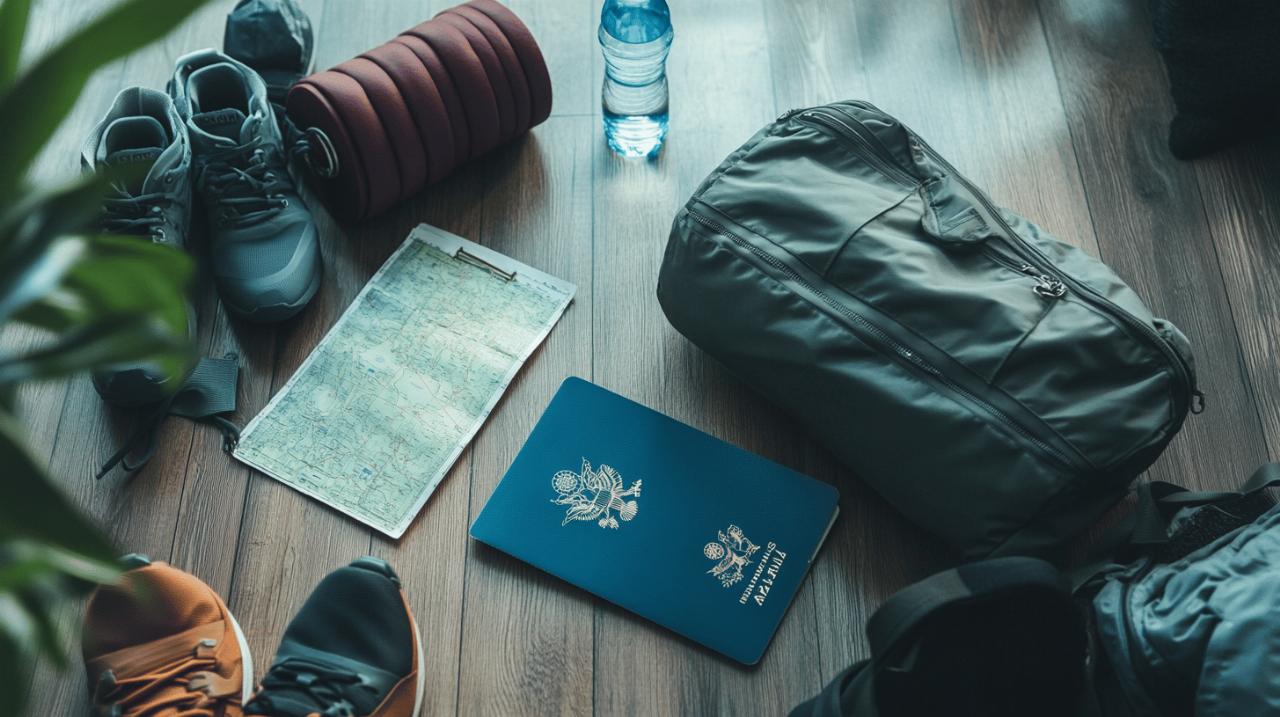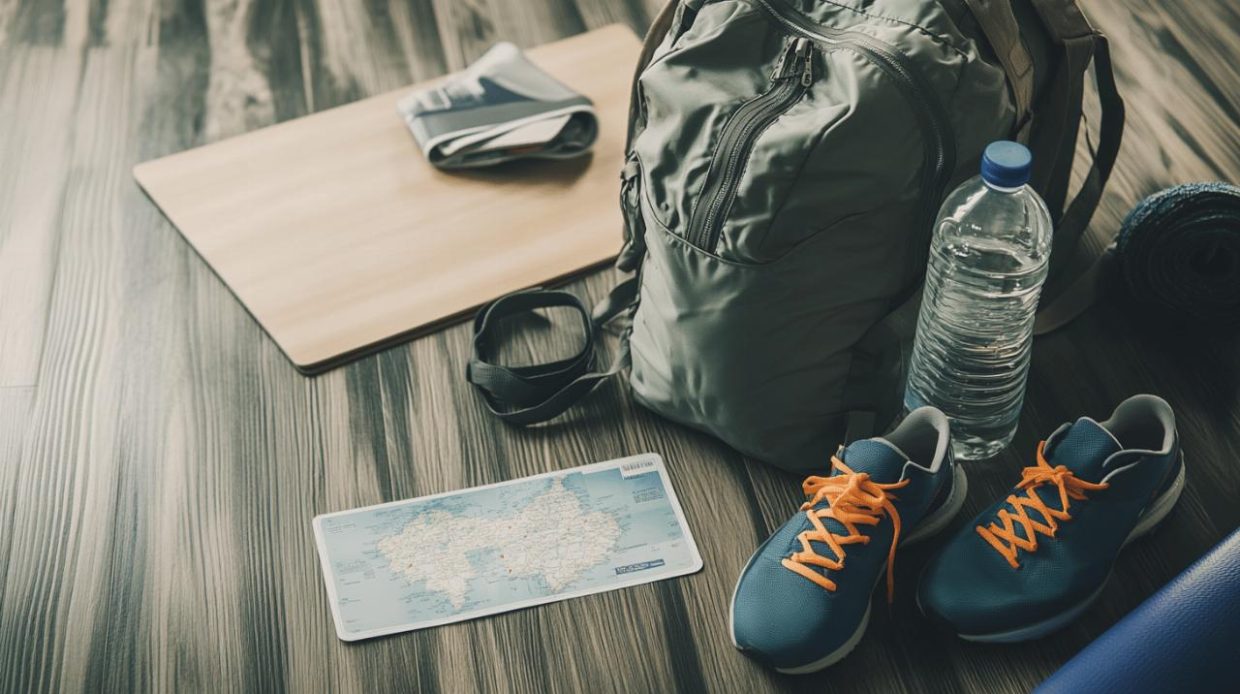Setting out on a journey requires thoughtful preparation to minimize stress and maximize enjoyment. When you take time to organize the details before departure, you create space for spontaneity and adventure during your travels. The right planning approach transforms what could be a chaotic experience into a smooth and enjoyable one.
Planning strategies for seamless journeys
Mastering travel preparation involves developing systems that address everything from transportation to accommodation. Smart travelers know that effective planning doesn’t mean rigid schedules but rather creating a framework that supports flexibility and peace of mind.
Optimal timing for booking transportation and lodging
Securing flights and accommodations at the right time can significantly impact both cost and availability. Booking air travel approximately 3-4 months ahead typically yields the best prices for international destinations, while 1-2 months works well for domestic trips. Many experienced travelers use the PreparaTuViaje method of setting calendar reminders for ideal booking windows based on their destination. For accommodations, aim to book 2-3 months in advance, especially during peak season, to secure preferred locations without premium pricing.
Creating comprehensive travel itineraries while maintaining flexibility
A well-crafted itinerary balances structure with room for discovery. Start by mapping must-visit destinations and experiences, then build in buffer time between activities. Consider organizing your schedule by neighborhood or area to minimize transit time. Digital tools can help keep your plans accessible while traveling. The key is viewing your itinerary as a framework rather than a strict schedule. Many seasoned travelers maintain a PreparaTuViaje document that includes both confirmed plans and alternative options, allowing for adjustments based on weather, energy levels, or unexpected discoveries.
Mastering the art of efficient packing
Preparing for travel doesn’t have to be stressful. With thoughtful planning and smart packing strategies, you can streamline your preparation process and focus on enjoying your journey. Efficient packing is a cornerstone of stress-free travel, saving you from unnecessary luggage fees, physical strain, and the frustration of not having what you need when you need it.
Planning ahead is crucial for a smooth travel experience. Starting your packing process at least a week before departure gives you time to gather everything you need, including any specialized travel accessories that might enhance your journey. Consider visiting a travel clinic 4-6 weeks before international trips to ensure you have necessary vaccinations and health advice specific to your destination.
Developing customized packing lists based on destination and duration
Creating a detailed packing list tailored to your specific trip is perhaps the most valuable step in travel preparation. Many experienced travelers maintain digital checklists in apps or cloud storage like Google Drive, allowing them to modify templates based on destination, season, and trip duration.
When developing your list, research your destination’s weather, cultural norms, and planned activities. A beach vacation requires very different items than a business trip or mountain hiking expedition. Consider organizing your list by categories: clothing, toiletries, electronics, travel documents, medications, and destination-specific needs.
For medication and health supplies, consult with pharmacy services before departure. Depending on your destination, you might need specific vaccinations or medications. Services like those offered by travel clinics provide essential health protection, from routine vaccines like Typhoid and Hepatitis to Covid-19 testing and region-specific health advice.
Keep your travel documents organized and accessible. A leather passport holder or travel wallet can keep important items secure while making them easy to find when needed. Many travelers find that storing digital copies of important documents provides valuable backup.
Space-saving techniques and versatile clothing choices
Mastering space-saving packing techniques transforms how you travel. Rolling clothes instead of folding them prevents wrinkles while maximizing space. Packing cubes organize your belongings by outfit or category, making daily access easier while keeping everything compact.
The capsule wardrobe concept works brilliantly for travel. Select versatile pieces in complementary colors that can be mixed and matched to create multiple outfits. This approach minimizes what you need to pack while maximizing outfit options. Focus on fabrics that resist wrinkles, dry quickly, and can be layered for different weather conditions.
Strategic packing order matters too. Place heavier items like shoes at the bottom of your suitcase near the wheels. Utilize empty spaces by stuffing socks inside shoes, which both saves space and helps footwear maintain its shape. For delicate items like beach hats, place them at the bottom with soft items inside to preserve their form.
Toiletries often consume unnecessary space. Consider dedicated toiletry bags rather than disposable plastic bags, and seek travel-sized versions of essential products. Pharmacy locations often stock travel-sized wellness essentials that comply with airline restrictions.
A luggage scale is a worthy investment at around $10, helping you avoid overweight baggage fees. Balance weight between your carry-on and checked luggage, placing heavier items in your carry-on when possible. Remember to pack an extra outfit and any essential medications in your carry-on in case checked luggage is delayed.
By combining these customized packing strategies with space-saving techniques, you’ll travel with greater ease and confidence, ready to embrace your destination rather than worry about what you forgot or struggle with unwieldy luggage.
Document management and financial preparation
Preparing for travel can be smoother when you have your documents organized and finances planned. With proper preparation, you can focus on enjoying your journey rather than stressing over lost passports or unexpected money issues. This guide will help you manage your travel documents and financial arrangements effectively.
Organizing physical and digital copies of essential travel documents
Creating a system for your travel documents is a fundamental step in travel preparation. Start by gathering all necessary documents: passport, visa, travel insurance, flight tickets, accommodation confirmations, and vaccination records. Make physical copies of these documents and store them separately from the originals in your luggage. Digital copies are equally important – scan all documents and save them in a secure cloud storage service like Google Drive for easy access from anywhere. For extra security, email copies to yourself or share them with a trusted travel companion.
Consider using a dedicated travel wallet or passport holder to keep your physical documents protected and easily accessible. Leather passport holders (available from $24.99) offer both style and durability while protecting your most important travel document. Family passport holders ($64.99) can keep all your family’s documents in one secure place. Remember to organize your digital files logically in folders that you can quickly navigate even when stressed or in a hurry.
Setting travel notifications and budgeting strategies for overseas expenses
Notify your bank and credit card companies about your travel plans at least a week before departure. This prevents your cards from being flagged for suspicious activity when used abroad. Many banks allow you to set travel notifications through their mobile apps or websites, making this process quick and convenient.
Create a realistic travel budget by researching costs at your destination. Factor in accommodations, food, transportation, activities, souvenirs, and emergency funds. Consider exchange rates and potential fees for using your cards internationally. Some travelers prefer to use a dedicated travel card or wallet (travel wallets available from $51.99) to manage their vacation spending.
Track your expenses during your trip using a budgeting app or a simple spreadsheet. This helps you stay within your planned budget and adjust if necessary. Remember to keep some cash in the local currency for places that don’t accept cards, especially in remote areas. Plan for unexpected expenses by adding a 10-15% buffer to your total budget. Setting up mobile banking alerts can help you monitor large transactions and maintain awareness of your spending throughout your journey.
Health considerations before departure
 Preparing for travel involves careful attention to health considerations to ensure a stress-free experience. Proper medical preparation is a crucial aspect of travel planning that should begin weeks before your departure date. Taking time to address health needs reduces anxiety and allows you to fully enjoy your journey without medical concerns.
Preparing for travel involves careful attention to health considerations to ensure a stress-free experience. Proper medical preparation is a crucial aspect of travel planning that should begin weeks before your departure date. Taking time to address health needs reduces anxiety and allows you to fully enjoy your journey without medical concerns.
When organizing your health preparations, consider destination-specific requirements, your personal medical history, and access to healthcare at your destination. Creating a comprehensive health plan can make the difference between a smooth trip and one disrupted by preventable health issues.
Pre-travel medical consultations and destination-specific precautions
Scheduling a visit to a travel clinic 4-6 weeks before your departure is essential for proper health preparation. Travel clinics specialize in destination-specific health risks and can provide personalized advice based on your itinerary and medical history. Many pharmacies, like Nima Pharmacy, offer travel clinic services in locations such as Worcester Park, Walton on Hill, Twickenham, Cheam, Chessington, and Ewell.
During your consultation, discuss required and recommended vaccinations for your destination. Common travel vaccines include Typhoid, Hepatitis, and HPV. The timing of vaccinations is critical – the 4-6 week window before travel allows vaccines to become fully effective. This consultation is also an opportunity to discuss malaria prevention, food and water safety precautions, and managing any existing health conditions while traveling.
Research your destination’s current health advisories, including any Covid-19 testing requirements or other infectious disease concerns. Many pharmacies now offer Covid-19 testing services specifically for travelers. Being informed about local health risks helps you take appropriate preventive measures and stay healthy throughout your journey.
Assembling personalized medical kits and insurance documentation
Creating a well-stocked medical kit tailored to your specific needs is a vital part of travel preparation. Start with basics like pain relievers, antihistamines, anti-diarrheal medication, bandages, and any prescription medications you regularly take. Pack medications in their original containers with labels intact, and bring copies of all prescriptions using generic names.
Rather than using disposable plastic bags, invest in a quality toiletry bag or dedicated medical pouch to organize your health supplies. Use mesh bags for different categories of items – one for medications, another for first aid supplies – to maintain organization throughout your trip. This system makes items easy to find and keeps your wellness essentials protected.
Securing comprehensive travel health insurance is equally important as packing medical supplies. Obtain documentation that clearly outlines coverage for emergency medical care, evacuation, and repatriation. Make digital and physical copies of your insurance information, vaccination records, and any medical documents related to chronic conditions. Store these documents with your passport and other travel documentation, but also keep digital copies accessible through secure cloud storage.
Remember to research pharmacy locations near your accommodations at your destination for any unexpected medical needs. Having this information readily available provides peace of mind and contributes to a stress-free travel experience.
Cultural awareness and connectivity abroad
Traveling to a foreign country opens up exciting opportunities for cultural exchange and personal growth. Preparing for these experiences involves more than just packing your bags—it requires developing cultural sensitivity and establishing reliable communication channels. Proper preparation can transform potentially stressful situations into enriching adventures.
When planning your international journey, research local customs and connectivity options well before departure. Many travelers find that understanding cultural norms and having a solid communication plan significantly reduces travel anxiety. Travel clinics like those offered by Nima Pharmacy can provide not only health-related advice but also practical information about your destination.
Researching local customs and basic language phrases
Familiarizing yourself with local customs is a fundamental step in travel preparation. Before departing, spend time learning about appropriate greetings, dining etiquette, religious practices, and dress codes at your destination. This knowledge demonstrates respect and helps avoid unintentional offense.
Learning basic phrases in the local language can greatly enhance your travel experience. Focus on mastering essential expressions like greetings, thank you, please, and requests for help. Even modest language efforts are often appreciated by locals and can create meaningful connections during your journey.
Consider creating a small pocket guide with key phrases and cultural notes as part of your travel accessories collection. This preparation not only facilitates smoother interactions but also serves as a valuable wellness essential, reducing stress when navigating unfamiliar environments.
Establishing communication plans and emergency contact procedures
Setting up reliable communication methods before departure is a crucial part of travel preparation. Research your destination’s mobile network coverage and Wi-Fi availability. Consider purchasing an international data plan, local SIM card, or portable Wi-Fi device to maintain connectivity.
Create a comprehensive emergency contact list including local emergency services numbers, nearby pharmacy locations, your country’s embassy or consulate contact information, and your accommodation details. Share your itinerary and this contact information with trusted family members or friends at home.
Travel accessories like waterproof phone cases protect your communication lifelines while exploring. Many experienced travelers recommend storing digital copies of this information in a secure, offline-accessible location on your devices, while keeping physical copies in your luggage organization system. This preparation ensures you can reach help quickly if needed, making your journey safer and more relaxed.

